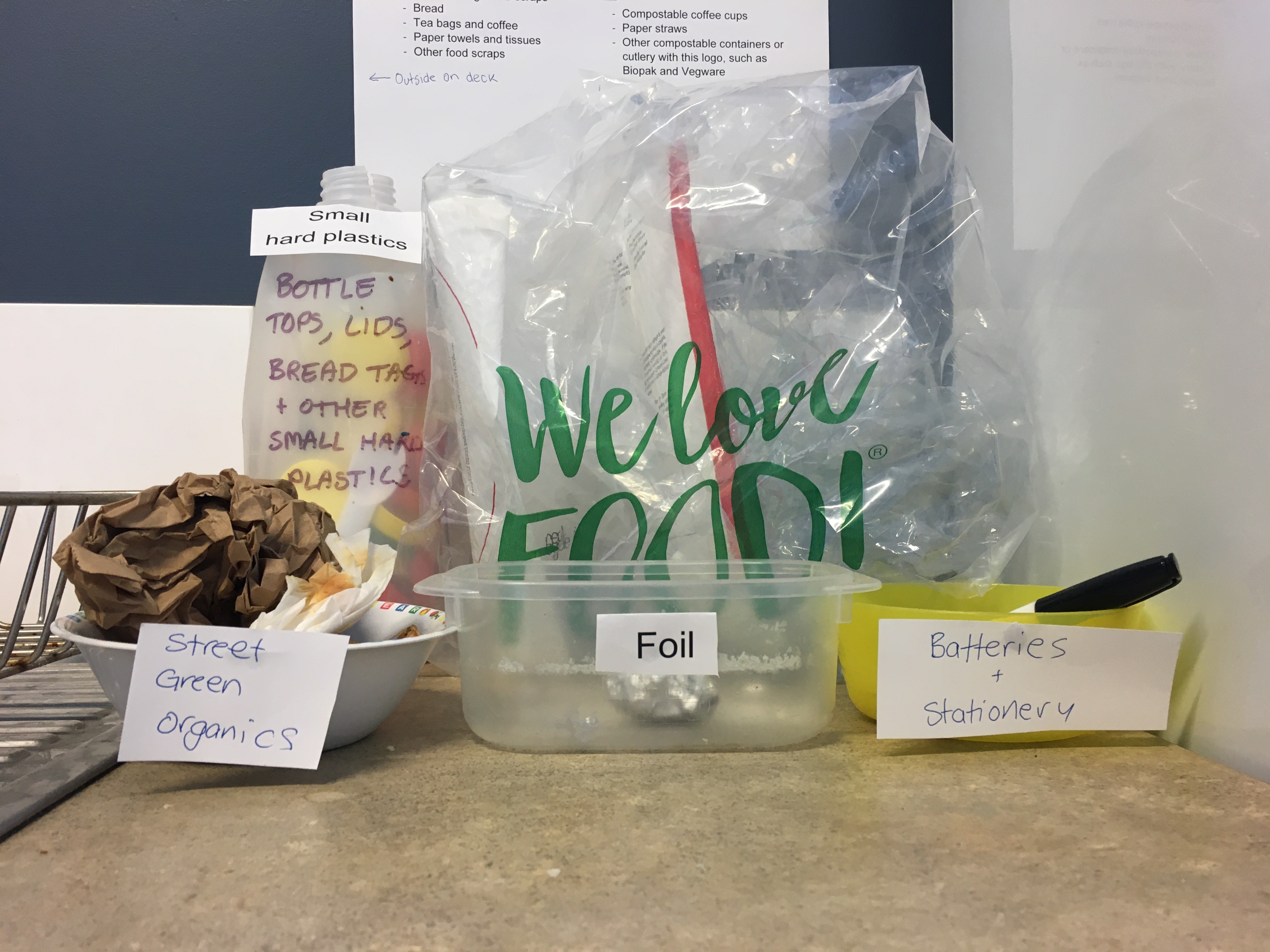
Landfill and recycling bins are available in most workplace kitchens, but there could be some additional practices we can undertake to better divert our waste from landfill and save valuable resources.
Here is an example of the small set up here at the Marine Discovery Centre on our kitchen bench. Some simple signs can help your colleagues to find the best place for any waste, as it can become confusing!

We have mixed recycling and landfill bins, and we are lucky enough to have access to compost bins in the school garden. We take any food scraps, paper towels, tissues and small scraps of paper that are either added to a compost bin or work farm, which the school can then use on their garden or share worm tea with families from the school.

Many businesses don’t have access to council organics bins for food scraps unless specially ordered. This is unfortunate as food scraps sent to landfill begin to rot and release methane; one of the greenhouse gases that plays a role in climate change.
Food scraps are a fantastic resource as we are able to turn them into compost and add essential nutrients back into the earth that are used when plants are grown and harvested or are lost following rainfall.
An answer to this issue in the workplace kitchen could be to collect food scraps in a container or compostable bag and create a roster system for staff member to take some food scraps home each day to their council green/organics bin at home.

If these become smelly on the benchtop, a simple solution is to store them in the freezer until ready to take home.
Additionally, some items are more difficult to recycle than others in our co-mingled yellow-lidded recycling bins. For example, soft plastics cannot be recycled in this bin, which is why recyclables should always go in loose, not in a plastic bag. However, they can be collected if clean and dry, and taken to Woolworths and Coles as a part of the Redcycle program. These are used to make items such as outdoor benches, playground equipment and bollards.
Find out what can be redcycled here: https://www.redcycle.net.au/what-to-redcycle/
Some other suggestions for workplace benchtop recycle stations include rolling any clean aluminium foil into a ball, adding to it until it reaches tennis ball size, and adding to the recycling bin. Other common workplace waste items could include batteries, stationary or printer cartridges. These can be collected and taken to many Officeworks stores for recycling - https://www.officeworks.com.au/information/about-us/sustainability/environment/recycling
Any small hard plastics such as bread tags, plastic lids and plastic cutlery, are too small on their own and can become lost in the recycling process, then sent to landfill. Simply clean a clear milk or juice bottle and use to collect any hard plastics smaller than a credit card. When full, replace the lid and also add to recycling bin.
You and your workmates might also want to try creating less waste all together, removing the need for as much sorting. Bring food in reusable containers, make delicious homemade meals from scratch, or buy items in bulk to share at work rather than having individually wrapped goods. So have a chat with your colleagues, discover what kinds of waste are created at your workplace, change some practices so that more resources can be recovered, and we can divert as much as possible from landfill. Some of the items that end up here never really go away.